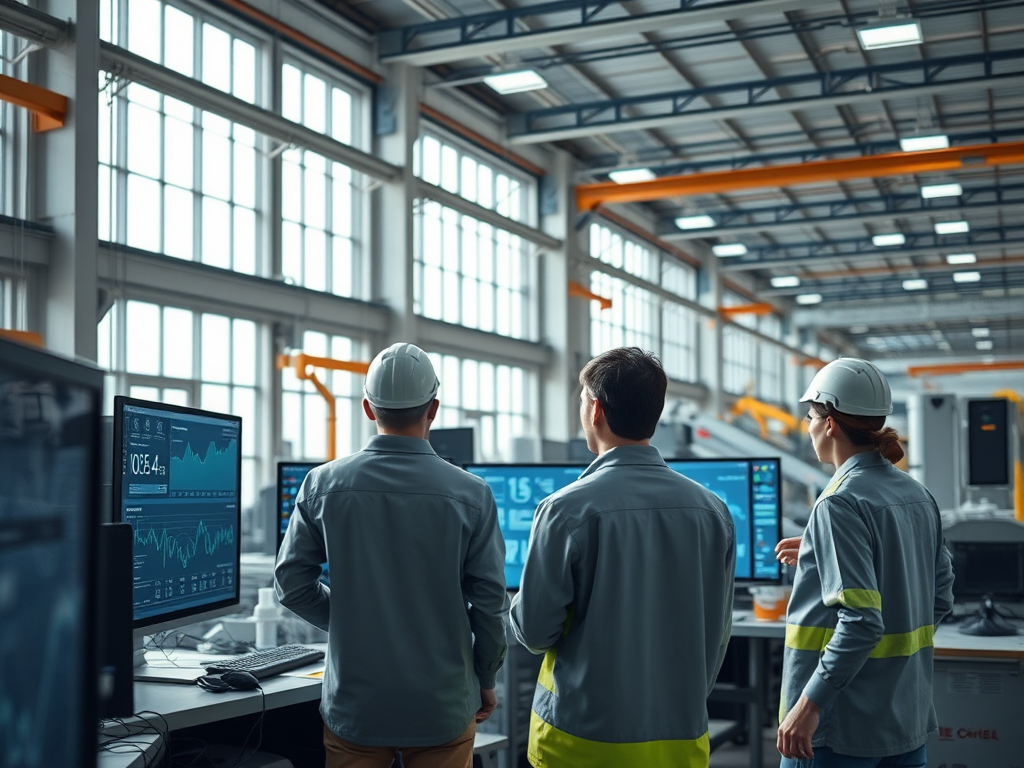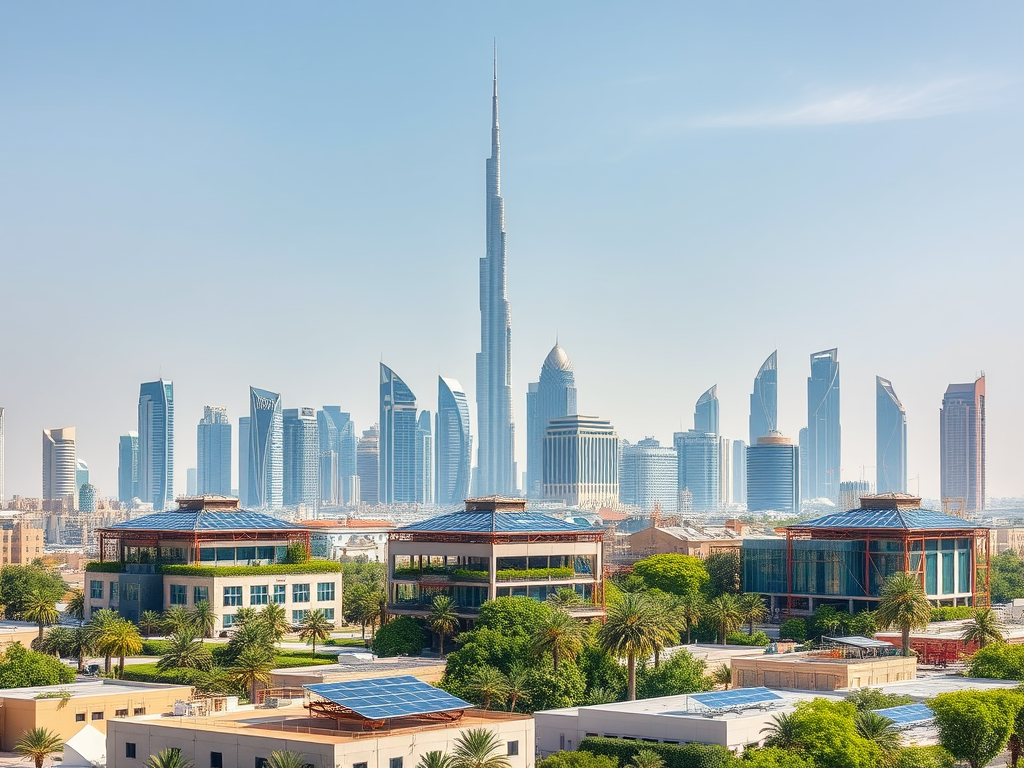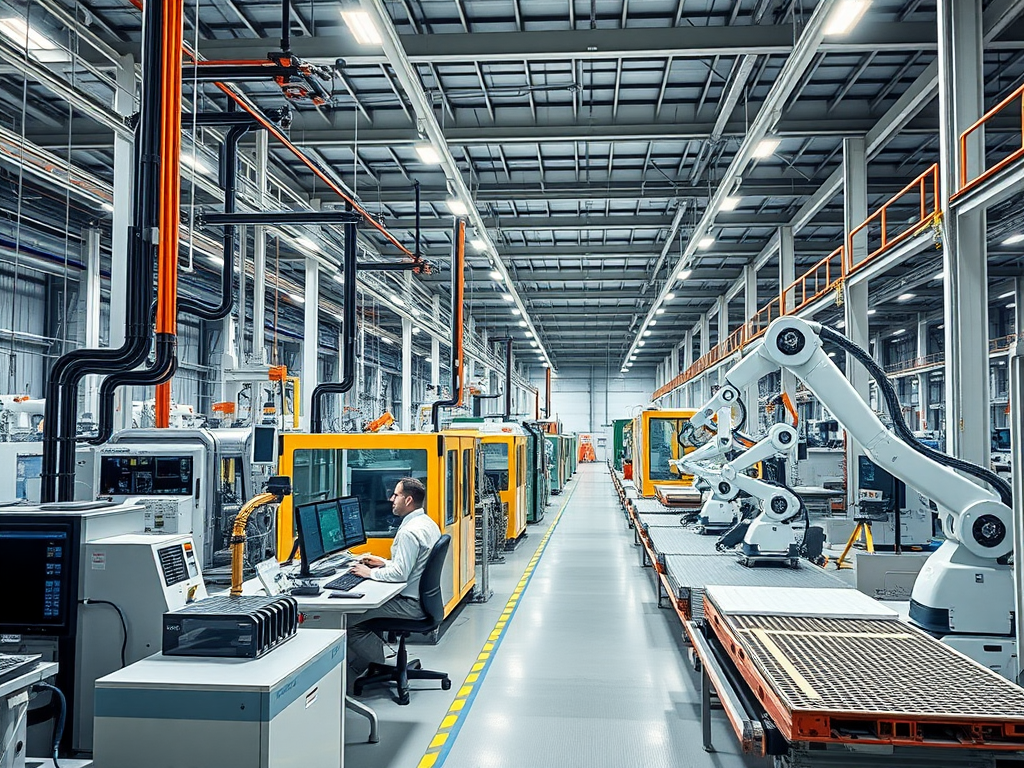Dubai’s smart manufacturing projects highlight the city’s ambition to lead the Fourth Industrial Revolution, focusing on integrating advanced technologies into manufacturing processes. The UAE government has set forth initiatives to modernize traditional manufacturing through automation, data exchange, and AI-driven solutions. This transformation not only aims to boost efficiency and reduce costs but also positions Dubai as a hub for innovative manufacturing practices in the Middle East. In this article, we’ll explore the scope of smart manufacturing projects in Dubai, their benefits, challenges, and future directions.
Understanding Smart Manufacturing

Smart manufacturing utilizes advanced technologies to enhance productivity, flexibility, and operational efficiency within manufacturing environments. At its core, it involves the integration of the Internet of Things (IoT), artificial intelligence, big data analytics, and robotics within manufacturing systems. Smart factories are designed to be connected and data-driven, enabling manufacturers to respond swiftly to market demands and optimize their supply chain. The impact of smart manufacturing goes beyond mere efficiency; it also includes sustainability and safety improvements. Here are some key components of smart manufacturing:
- Internet of Things (IoT) – Connecting devices for real-time data exchange.
- Artificial Intelligence (AI) – Enhancing decision-making through predictive analytics.
- Automation – Using robotics to streamline production processes.
- Data Analytics – Gaining insights from big data to improve operations.
- Sustainability Practices – Reducing waste and energy consumption.
Dubai’s Strategic Vision for Smart Manufacturing

Dubai’s government has launched various initiatives to facilitate smart manufacturing as part of its broader economic diversification strategy. The Dubai Industrial Strategy 2030 aims to create a platform for sustainable industrial development, making Dubai a global hub for manufacturing innovation. By investing in infrastructure, research, and development, the government hopes to create an ecosystem that encourages local and foreign manufacturers to adopt smart technologies. Key initiatives include the Dubai Future Foundation, which focuses on futuristic innovations, and partnerships with technology leaders to drive integration of smart systems. The strategic vision also emphasizes the importance of workforce development in ensuring that talent is equipped to handle advanced manufacturing technologies.
The advantages of embracing smart manufacturing in Dubai are substantial and have far-reaching implications for the economy as a whole. Firstly, the integration of technology leads to increased efficiency, allowing manufacturers to reduce production time and costs significantly. Secondly, the flexibility offered by smart systems enables manufacturers to respond rapidly to market changes and customer needs. Thirdly, the use of data analytics helps in making informed decisions, minimizing errors, and improving quality control. Additionally, adopting sustainable practices promotes environmental responsibility and compliance with global standards. Lastly, smart manufacturing technologies pave the way for innovation and collaboration, enhancing Dubai’s reputation as a technology-forward city.
Challenges in Implementing Smart Manufacturing
Despite the enormous potential, the path to realizing smart manufacturing is not without its challenges. One major hurdle is the initial investment required to adopt advanced technologies, which can be a deterrent to small and medium-sized enterprises. Additionally, there is a need for skilled labor to manage and operate these smart systems, creating a demand for training and educational programs. Cybersecurity is another critical concern, as increased connectivity poses risks to sensitive manufacturing data. Moreover, the integration of existing manufacturing systems with new technologies can lead to compatibility issues and operational disruptions. Overcoming these challenges will require collaboration between government, industry players, and educational institutions to create a conducive environment for smart manufacturing to flourish.
Conclusion
Dubai’s smart manufacturing projects represent a significant step towards a sustainable and technologically advanced manufacturing future. By embracing innovations in automation, data analytics, and AI, Dubai can enhance its manufacturing sector and strengthen its position as a global trade hub. The ongoing collaboration between the government, industry stakeholders, and educational institutions is vital to overcoming existing challenges and ensuring a skilled workforce ready for the future. As smart manufacturing continues to evolve, Dubai is poised to harness its full potential, which could serve as a blueprint for other nations aiming for industrial transformation.
Frequently Asked Questions
1. What is smart manufacturing?
Smart manufacturing is the use of interconnected machinery and advanced technologies to streamline manufacturing processes, enhance efficiency, and improve decision-making through data analytics.
2. How is Dubai promoting smart manufacturing?
Dubai is promoting smart manufacturing through initiatives like the Dubai Industrial Strategy 2030, investment in infrastructure, and partnerships with technology leaders, all aimed at creating an innovation-friendly ecosystem.
3. What are the main challenges facing smart manufacturing in Dubai?
Challenges include high initial investment costs, a lack of skilled labor, cybersecurity risks, and integration issues between old and new technologies.
4. What benefits does smart manufacturing offer?
Benefits include increased operational efficiency, enhanced flexibility, improved quality control, sustainability gains, and the fostering of innovation and collaboration.
5. How can companies prepare for the adoption of smart manufacturing?
Companies can prepare by investing in employee training, exploring partnerships with technology providers, and developing a strategic plan that incorporates scalable technology solutions tailored to their specific needs.


